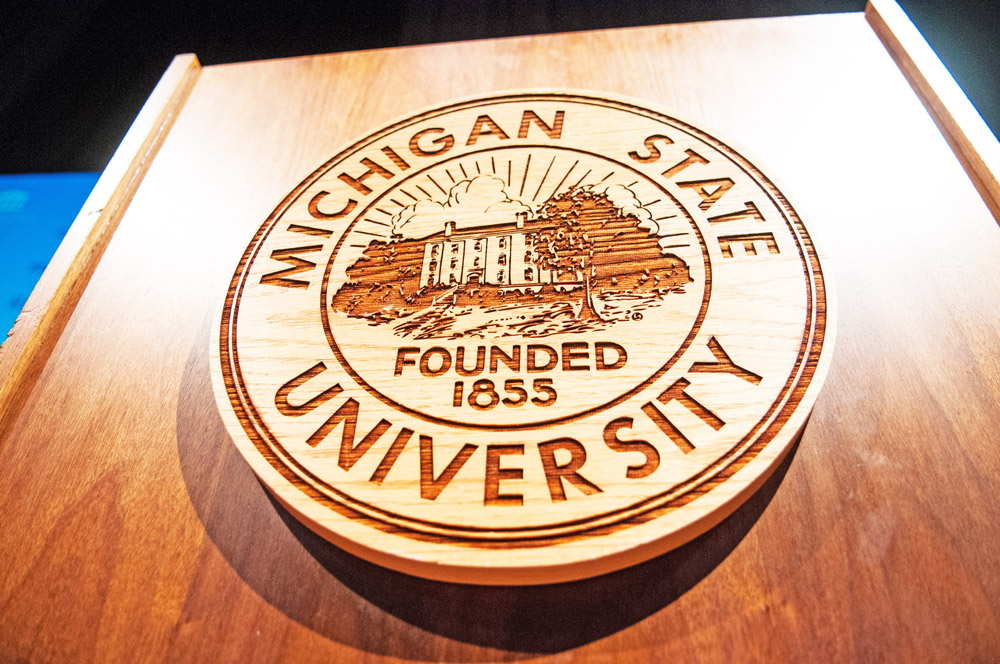Acceptable Use Policy & Resources (MBP – Section 210)
The Acceptable Use Policy lays the foundation for acceptable use of the MSU information technology environment, including business systems and applications, computing services, MSU networks, databases, and other technology resources. These resources also lay out technology usage expectations and responsibilities for the MSU community.
- Michigan State University Acceptable Use Policy for MSU Information Technology Resources
- FAQ about the Acceptable Use Policy for MSU Information Technology Resources
- Trusted Network and Host Security Management in the Context of the MSU Acceptable Use Policy
- MSU Information Technology Security Standard
- Electronic Information Technology (EIT) Purchase Process
- MSU Guidelines for Research Data within Qualtrics Survey Tool
Appropriate Use of Email Services & Resources
These guidelines and resources aim to improve the effectiveness and efficiency of email communication and set best practices for bulk email. Also covered is information about AFS storage.
- Appropriate Use of MSU Email Services by Internal Users on MSUnet
- FAQ about the Appropriate Use of MSU Email Services by Internal Users on MSUnet
- Guidelines Regarding Bulk Emailing by Internal Users on MSUnet
- IT Services Practice Regarding Remote Wipe on Mobile Devices Using Exchange ActiveSync
- MSU Student Email Communications Notice
- MSU Email Expirations for Past Students
- Frequently Asked Questions Regarding Email Expirations for Past Students
- MSU Andrew File System Storage Retirement
Cloud Computing Guidelines & Resources
Cloud computing applications provide variety of services and features that are useful to faculty, staff, and students at MSU. However, the terms of service for many cloud computing applications involve a variety of risks to users and the content they put and share with these services.
These guidelines and resources provide direction to help individuals make informed choices about the appropriate use of cloud computing services based on content and types of data.
- “Cloud Computing” Services: Appropriate use of online software tools such as Google Apps, Gmail, and Microsoft Office Live
- Appropriate Use of the Michigan State University Google Apps Education Edition Services
Copyright Information & Resources (DMCA, HEOA)
If MSU receives a Digital Millennium Copyright Act (DMCA) compliant from a copyright holder, it is required by federal law to contact the individual who is sharing copyrighted files illegally on the MSU network. These procedures are required under the copyright-related regulations associated with the Higher Education Opportunity Act (HEOA) of 2008.
- Procedures for Addressing Instances of Possible Copyright Infringement on MSU’s Computing Resources and Network
- Copyright Complaint (DMCA) Processing at MSU
- Notice of Writen Plan for Copyright Provisions of the Higher Education Opportunity Act (HEOA Procedures)
Exploring Alternative EdTech Approaches for International Student Participation
Given that there is variability in the availability of technologies and materials and differences in time based on location and that the availability of those technologies change over time, faculty members need to be as flexible as possible in the course requirements (technology, materials, timing), and both faculty and students need to be vigilant and clear communicators of their needs.
The goal of this document is to provide possible alternatives for challenges that faculty may employ in accommodating students reporting that technologies are not available to them in their geographic location.
Interim Guidance on Data Uses and Risks of Generative AI
Generative artificial intelligence (AI) language models, including products like ChatGPT and Bard, are powerful tools that can assist with various tasks from teaching and learning, to writing support, to data analysis. Read more about the important considerations and current guidance on generative AI technology use at MSU.
Institutional Data Policy & Resources
Michigan State University needs to protect the security and integrity of its institutional data without hindering the effective and efficient use of those data. The purpose of this policy is to establish minimum requirements for the appropriate stewardship of institutional data by the MSU community.
Student Computer Requirement
Undergraduate students entering MSU are required to bring a personal computer. MSU does not recommend students to rely upon the Apple iPad as their primary computer.
Web Accessibility Policy & Guidelines
All web pages and online content used to conduct university business or academic activities should meet accessibility standards. This ensures inclusive access to online information and web functionality.
- MSU Web Accessibility Policy
- Technical Guidelines (WCAG 2.0)
- Web Accessibility Tutorials
- Guidance Regarding Electronic Textbooks and Readings, July 2010
Telecommunications Policy (MBP – Section 280)
The Telecommunications Policy details procedures for directory information changes, telephone equipment changes and telephone service charges.


